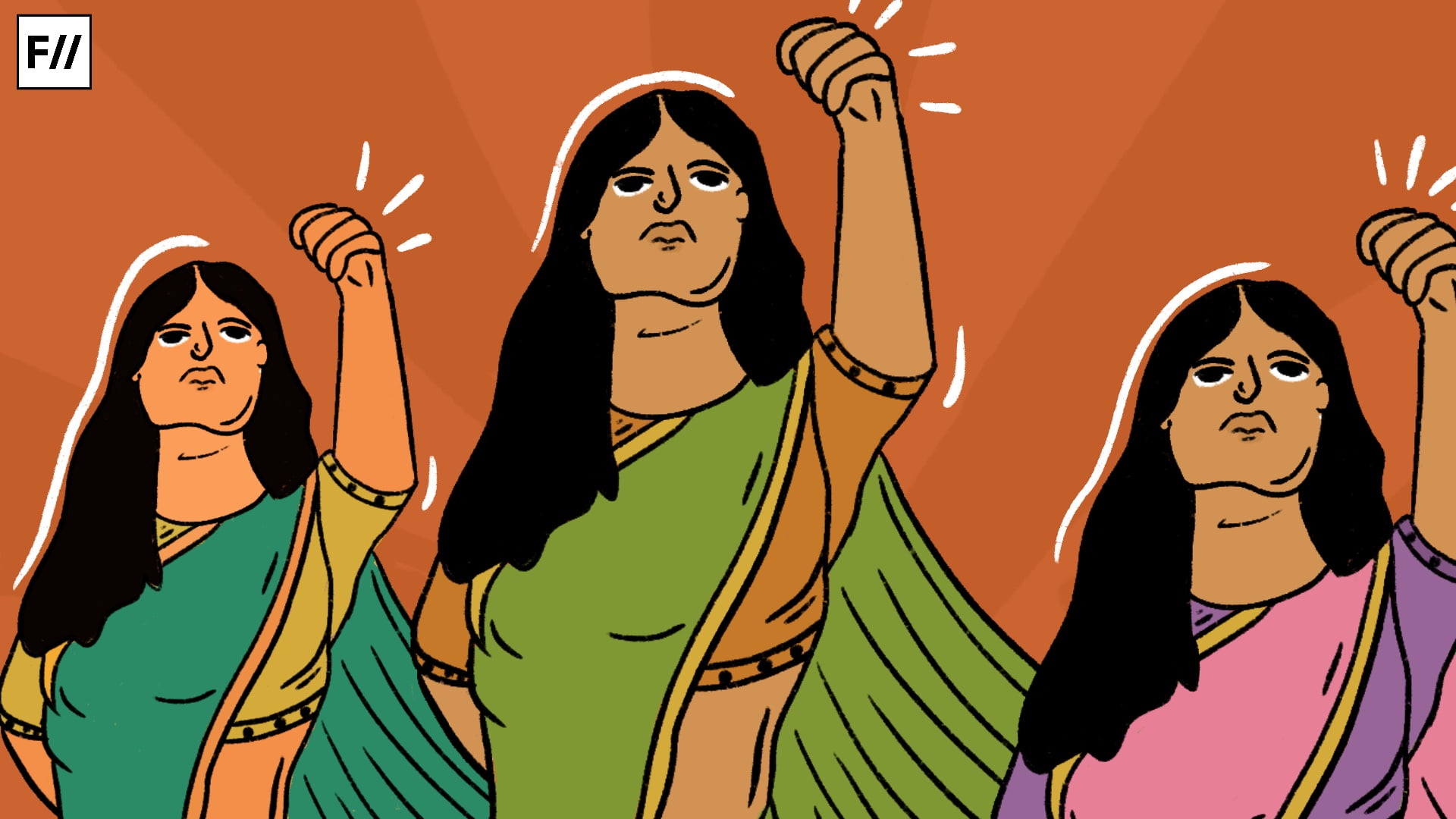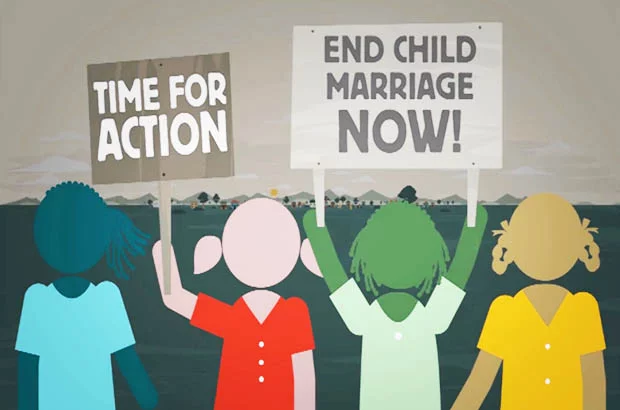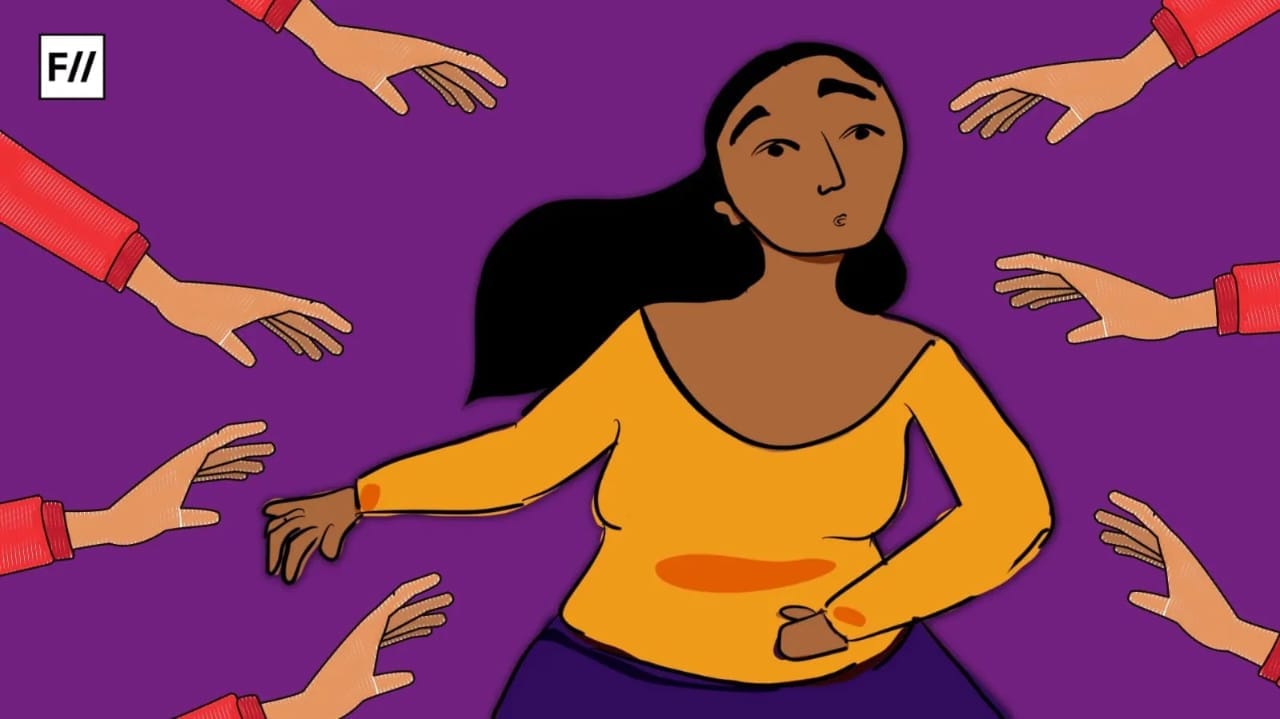“We brought two bottles of alcohol, one to serve the men attending the memorial and one for the people preparing the meal. While some may take money with the serving of alcohol as remuneration, some even are ok with only alcohol,” said Shobha talking about the event of the death anniversary of her husband, a labourer, whom she lost because of liver failure due to extreme consumption of alcohol.
In a recent study, alcohol consumption in India amounted to about five billion litres in 2020 and was estimated to reach about 6.21 billion litres by 2024. The problem of alcoholism is widely prevalent among low-income groups. However, the dependency on alcohol is also used as remuneration for menial tasks or is paired with much less monetary benefits.
“We brought two bottles of alcohol, one to serve the men attending the memorial and one for the people preparing the meal. While some may take money with the serving of alcohol as remuneration, some even are ok with only alcohol,” said Shobha talking about the event of the death anniversary of her husband, a labourer, whom she lost because of liver failure due to extreme consumption of alcohol.
“They would make them [men] work all day and would offer alcohol for their overtime. If four people are working overtime, they [employers] will give one bottle to them. They wouldn’t care if their workers would go home or not; if they fall on the road or if wild animals attack them, it’s not their responsibility. They will get back into the comfort of their homes. My husband would leave our house at 8 in the morning and would come back home at 8 in the night because he used to stay for overtime”, told Shobha.
Alcohol is not only a public health concern but also exacerbates domestic violence. Many domestic violence survivors state alcohol as the only reason for the violence they face in their households.
“I believe that alcohol is the worst. My husband used to drink moderately, but lately, due to tension and stress, he has started to drink a lot more. Everything is ok, but he fights with me when he drinks,” said Simran*, a homemaker from Haryana.
Phoolmani, an activist from Chattisgarh, emphasised how alcohol becomes the reason for violence against the family but goes unreported. “The situation in our area is very complex, domestic violence is very rampant here, but it never gets out of the four walls of the house. In my survey, alcohol came out to be the biggest problem of domestic violence.”
Phoolmani, an activist from Chattisgarh, emphasised how alcohol becomes the reason for violence against the family but goes unreported. “The situation in our area is very complex, domestic violence is very rampant here, but it never gets out of the four walls of the house. In my survey, alcohol came out to be the biggest problem of domestic violence.”
“Alcohol consumption by male partners contributes to domestic violence, one of the examples would be the blanket ban on the sale of alcohol in the state of Bihar, many women whom we work with on the grass-root level came in support of this policy women, at the time of the implementation of the ban were very happy and had reported that cases of violence against women have gone down,” said Santosh, a gender activist, Santosh leads work on strengthening grassroots women’s collectives for Nirantar in the state of Bihar.
However, gender-based violence can be pinned to many factors like norms, power hierarchy, and patriarchy as the main ingredients to creating an environment where domestic violence becomes an accepted part of a household.
“We don’t directly associate alcohol with gender-based violence; yes, it’s a major cause, but it’s far from being the only one. For example, if a person is drunk and comes across police officers, he would not beat the officers or hit his boss, but when he gets home, he will hit his wife because he knows there is a power disparity, he knows he has power over his wife”, Anjana, Director, Equal Community Foundation stated.
“Alcohol consumption by male partners contributes to domestic violence, one of the examples would be the blanket ban on the sale of alcohol in the state of Bihar, many women whom we work with on the grass-root level came in support of this policy women, at the time of the implementation of the ban were very happy and had reported that cases of violence against women have gone down,” said Santosh, a gender activist, Santosh leads work on strengthening grassroots women’s collectives for Nirantar in the state of Bihar.
“Alcohol is a huge symptom of an underlying mental health condition. A lot of time, perpetrators of violence may be someone who needs help,” told Dr. Gursahiba, a counselling psychologist currently working as the project lead for Hemkunt Foundation’s mental health wing
The culture of drinking alcohol before or after work may also be a fallout from the Hindu caste system. In India, where the profession of a person is decided by which caste they belong in the Bahujan community, alcoholism becomes a coping mechanism.
“Alcohol is a part of the life of this community; when I first started, I wondered why everyone was drinking; I did not start my work with manual scavengers. I thought alcoholism was the problem. But when I asked, they told me that without drinking, we could not clean, there is so much frustration and exploitation there is no other outlet, and so they consume something to be in a different world for some time at least,” said Mr. Bezwada Wilson, Human Rights Activist, National convener of Safai Karamchari Andolan.
However, gender-based violence can be pinned to many factors like norms, power hierarchy, and patriarchy as the main ingredients to creating an environment where domestic violence becomes an accepted part of a household.
This alcohol dependency then becomes a means of exploitation where workers are not provided with fair wages or are given alcohol to manage their stress and frustration.
“Even in the public sector, such as coal mines, this is the employer’s policy. They allow liquor stores inside colonies where you are not even allowed to raise a cow. The permitted use of liquor is to manage the labourers. If they are frustrated, they will fight, or there will be a strike, but if they give out alcohol, even in small amounts, they work against their own. This has become a method of exploiting employees. The employers are from the dominant caste, and they believe that if they provide a quarter bottle of illicit liquor, the employees will do anything for n number of hours. As a result, it functions as bait for the fish.” said Bezwada
This is becoming a far more prevalent phenomenon, not only among these authorities but also among the general public.
“I had to construct two pits and lay the foundation. I asked a few labourers to work through the night where I provided them with alcohol and chicken the work that would have taken two days was done in one night,” told Karan.*
This alcoholism then spreads like wildfire engulfing the children within it. Growing up with parents consuming alcohol, the accessibility to alcohol becomes easy, and the perception of alcohol falls as a normal entity.
This alcohol dependency then becomes a means of exploitation where workers are not provided with fair wages or are given alcohol to manage their stress and frustration.
“Often, these children are asked by their elders to fetch them a bottle from the shop. These children of class 9 or 10 start having sips of alcohol while getting it home, so this is how the people of the community are always a part of this vicious circle of alcoholism.”, said Bezwada.
With alcoholism reaching normalcy in such communities, alcohol is also associated with masculinity. The Equal Community Foundation has a core program, action for equality, where the organisation works with low-income urban households. They work with adolescent boys and help them in their journey towards attitude and behavioural change.
“They are growing in an environment that teaches them to be aggressive, to be a macho man or a real man. But they are also in an enabling environment where they are spending four hours or two hours a week with us, after which, they have to go back to those homes and schools or back to their peers and older boys who put a lot of pressure on them to have alcohol or smoke a cigarette. A lot of boys say that they didn’t like to smoke, but they were forced, saying, “If you don’t smoke, you won’t be a real man.” told Anjana.
“I have grown up seeing men beating their wives. And physical violence is not the only kind of violence but not letting women do what they want is also violence which is very prevalent,” said Heena, a Dalit activist who works with low-income urban and rural areas.
“I think violence also happens when men make their women work to earn extra without her will. I wish to study more and open my own parlour, but my husband wouldn’t allow it,” sighed Simran.
With the pandemic over the last two years, many people have lost their jobs or are working for much lower pay, increasing their reliance on alcohol as a means of rejuvenation.
“They say our husbands have to drink after work to relieve the pain and stress of the job, and so this also becomes a reason for women not to come out and talk about the violence directed at them,” said Heena.
The women in marginalised communities have to bear the brunt very often. Due to their social status, other job opportunities are also out of reach, keeping them in the vicious circle of alcoholism. “They aren’t educated, they can’t get any job outside, even if they go out, they can’t do much. You’re a Balmiki, they say; what are you going to do? You can’t wash clothes; you can’t wash dishes; you can’t enter the house; now, the only option left is to clean the toilet. The opportunities for any other occupation are limited, and a woman’s parents also don’t take them back, so she has to keep quiet and bear all the things.” said Bezwada.
Also read: Is Our Approach To Alcoholism In Women Sexist?
“Alcoholism is taken very lightly by some, maybe because they drink in moderation, but for people like me who have lost their husbands due to alcohol, we know how much we have to see, how much we have to hear, and how much we have to endure”, sighed Shobha.
*Names have been changed to protect the identity.
Also read: Alcohol Abuse: On Parental Alcoholism And Broken Childhood
Swati is a freelance journalist. Her work focuses on human stories that explore issues such as human rights and gender. She is eager to learn more about gender and hopes that her work will make a significant difference in society. Swati can be found on Twitter and Instagram. This story has been written under the Laadli Media Fellowship.
Featured image source: Shreya Tingal for Feminism In India





